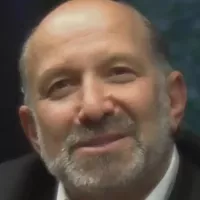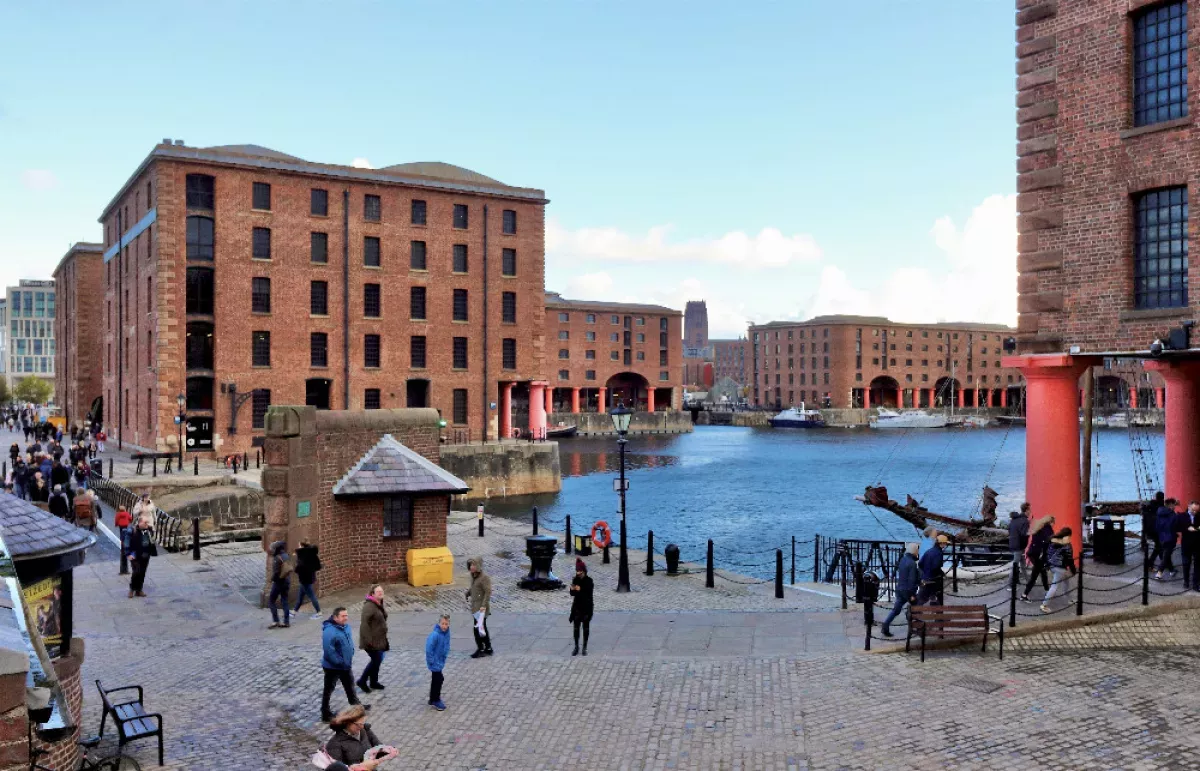Liverpool is a port city and metropolitan borough located in Merseyside, England, positioned on the eastern side of the Mersey Estuary. Situated approximately 178 miles northwest of London, it serves as the administrative, cultural, and economic hub of the Liverpool City Region, which has a population exceeding 1.5 million. As of 2022, the city itself had a population of around 496,770 residents.
1900: Liverpool hosts the Welsh national Eisteddfod
In 1900, Liverpool held Europe's largest music and poetry event, the Welsh national Eisteddfod.
1901: James Hanley born in Kirkdale
In 1901, James Hanley was born in Kirkdale Liverpool
1901: Frank Hornby's Inventions
In 1901, Liverpool inventor Frank Hornby created Meccano and Hornby Model Railways.
1901: First performance of Pomp and Circumstance March No. 1
In 1901, Sir Edward Elgar dedicated his Pomp and Circumstance March No. 1 to the Liverpool Orchestral Society, and the piece had its first performance in the city.
1901: Construction of Stanley Dock Tobacco Warehouse in 1901
In 1901, the Stanley Dock Tobacco Warehouse was constructed, becoming the world's largest building in terms of area at the time and remaining the world's largest brick-work building today.
1902: First British Nobel Prize
In 1902, the first British Nobel Prize was awarded to Ronald Ross, professor at the School of Tropical Medicine in Liverpool.
1903: University of Liverpool became independent
In 1903, following a Royal Charter and Act of Parliament, University College Liverpool became an independent university known as the University of Liverpool, with the authority to confer its own degrees.
1904: Construction of Anglican Cathedral begins
In 1904, construction began on the Anglican Cathedral, which would later become the largest cathedral in Britain and the fifth largest in the world.
1906: Liverpool City's first season
In 1906, Liverpool City competed in their first and only season finishing 26th of 26.
September 1908: Earliest Snowfall
Historically, the earliest snowfall in Liverpool occurred on September 10, 1908.
1908: Goodison Park hosted Kangaroo Tour match
In 1908, Goodison Park hosted a Kangaroo Tour match.
1908: Bluecoat Chambers as a centre for arts in Liverpool since 1908
Since 1908, the Grade I listed Bluecoat Chambers has acted as a centre for arts in Liverpool.
1914: Establishment of the Liverpool Talmudical College
In 1914, the Liverpool Talmudical College was established; it existed until 1990, when its classes moved to the Childwall Synagogue.
1916: Birth of Gerald Hanley
In 1916, Gerald Hanley, novelist and brother of James Hanley, was born in Liverpool.
1919: Birth of June Bhatia (Helen Forrester)
In 1919, June Bhatia, later known as Helen Forrester, was born.
1919: The Housing Act
The Housing Act of 1919 led to the construction of mass council housing across Liverpool during the 1920s and 1930s.
1922: Goodison Park hosted Kangaroo Tour match
In 1922, Goodison Park hosted a Kangaroo Tour match.
1922: Last Kangaroo Tour match
In 1922, was the last time the Kangaroos had played in Liverpool.
December 1927: Lowest Amount of Sunshine
In December 1927, Liverpool experienced the lowest amount of sunshine on record, with only 16.5 hours.
1927: Breck Park Stadium opened
In 1927, Breck Park Stadium opened.
1929: Liverpool hosts the Welsh national Eisteddfod
In 1929, Liverpool held Europe's largest music and poetry event, the Welsh national Eisteddfod.
1930: Liverpool's First Provincial Airport
In 1930, Liverpool became the site of Britain's first provincial airport.
1931: Peak Population
In 1931, Liverpool's population reached an all-time high of 846,302. Following this peak, people were relocated to new housing.
February 1932: Driest Month
February 1932 was the driest month on record in Liverpool, with 0.9 mm (0.035 in) of rain.
1932: White City Stadium opened
In 1932, White City Stadium opened.
1932: Birth of Beryl Bainbridge
In 1932, novelist Beryl Bainbridge, who was known for her works of psychological fiction, was born in Liverpool.
1933: British Interplanetary Society Founded
In 1933, the British Interplanetary Society was founded in Liverpool by Phillip Ellaby Cleator.
1934: Dinky Toys Created
In 1934, Frank Hornby, an inventor from Liverpool, produced Dinky Toys.
1934: Liverpool Stanley formed
In 1934, professional rugby league returned to the city with the formation of Liverpool Stanley.
1935: England played Wales
In 1935, England played Wales at Liverpool Stanley's ground in the European Rugby League Championship.
1935: J. G. Farrell born in Liverpool
In 1935, J. G. Farrell was born in Liverpool.
1935: Publication of James Hanley's The Furys
In 1935, James Hanley published The Furys, the first in a series of five loosely autobiographical novels about working-class life in Liverpool.
1939: J. G. Farrell left Liverpool
In 1939, J. G. Farrell left Liverpool at the outbreak of war.
1945: Birth of Harold Edward Bindloss
In 1945, Harold Edward Bindloss, a prolific writer of adventure novels, who was born in Liverpool, died.
1948: Breck Park Stadium closed
In 1948, Breck Park Stadium closed.
1950: Passenger Helicopter Service
From 1950 to 1951, the world's first scheduled passenger helicopter service ran between Liverpool and Cardiff.
1951: Passenger Helicopter Service
From 1950 to 1951, the world's first scheduled passenger helicopter service ran between Liverpool and Cardiff.
1951: Festival of Britain
In June 2014, Prime Minister David Cameron launched the International Festival for Business in Liverpool, the world's largest business event in 2014, and the largest in the UK since the Festival of Britain in 1951.
1952: Liverpool Twinned with Cologne
Since 1952, Liverpool has been twinned with Cologne, Germany, a city that also suffered severe aerial bombing during the war.
August 1956: Wettest Month
August 1956 was the wettest month on record in Liverpool, with 221.2 mm (8.71 in) of rain.
1956: Liverpool Stanley hosted Australia
In 1956, Liverpool Stanley hosted Australia in their 1956–57 tour.
1962: Construction of Roman Catholic Metropolitan Cathedral begins
In 1962, the Roman Catholic Metropolitan Cathedral construction began. It is known for its departure from traditional longitudinal designs.
1964: Gerald Hanley scriptwriter for a life of Gandhi
In 1964, Gerald Hanley was one of several scriptwriters for a life of Gandhi.
1966: Death of George Garrett
In 1966, George Garrett, the writer, docker and political activist, died.
1966: Everton hosted 1966 FIFA World Cup games
In 1966, Goodison Park was one of the host venues during the FIFA World Cup.
1966: Release of The Blue Max
In 1966, The Blue Max was released. Gerald Hanley was one of the scriptwriters.
1967: Publication of The Mersey Sound
In 1967, "The Mersey Sound", an anthology of poems by Adrian Henri, Roger McGough, and Brian Patten, was first published.
1967: Foinavon won Grand National
In 1967, the 100/1 outsider Foinavon won the Grand National.
1967: Construction of Roman Catholic Metropolitan Cathedral Completed
In 1967, the Roman Catholic Metropolitan Cathedral construction was completed. It's noted as one of the first cathedrals to break the traditional longitudinal design.
1968: Stanley competed until 1968
In 1968, Liverpool Stanley competed until 1968.
1971: Frank Shaw's My Liverpool Publication
By the time that Frank Shaw's My Liverpool, a Celebration of 'Scousetown' was published in 1971, 'Scouser' had firmly become the dominant demonym for people from Liverpool.
1973: White City Stadium closed
In 1973, White City Stadium closed.
1974: Liverpool moved to Merseyside
In 1974, Liverpool was moved from Lancashire to the newly created county of Merseyside.
1974: Liverpool Became Metropolitan Borough
In 1974, Liverpool, previously part of Lancashire and a county borough since 1889, became a metropolitan borough within the newly created metropolitan county of Merseyside.
1974: Merseyside County Council
Liverpool was administered by Merseyside County Council between 1974 and 1986.
June 1975: Latest Snowfall
Historically, the latest snowfall in Liverpool occurred on June 2, 1975.
1977: Beryl Bainbridge won the Whitbread Awards prize for best novel
In 1977, Beryl Bainbridge won the Whitbread Awards prize for best novel.
1978: Construction of Anglican Cathedral Completed
In 1978, the Anglican Cathedral's construction was completed. The Cathedral, built in Gothic style, is considered one of the greatest buildings of the 20th century.
1978: Winter of Discontent
In late 1978, during the Winter of Discontent, Liverpool suffered public sector strikes along with the rest of the United Kingdom. Grave-diggers also went on strike, leaving the dead unburied for long periods.
1979: General Election and Thatcher's Victory
After the 1979 general election, many claimed that Margaret Thatcher's victory contributed to longstanding high unemployment and decline in Liverpool due to her monetarist economic policies.
1979: Death of J. G. Farrell
In 1979, J. G. Farrell drowned in Ireland at the age of 44.
1981: Air Frost
Between 1981 and 2010, Crosby recorded an average of 32.8 days of air frost per year.
January 1982: Unemployment Rates in Liverpool
By January 1982, unemployment rates in Liverpool were among the highest in the UK, standing at 17%.
1983: Royal Liverpool Golf Club hosted the Walker Cup
In 1983, the Royal Liverpool Golf Club hosted the Walker Cup.
1983: Green Belt
In 1983, the green belt was first drawn up under Merseyside County Council, with 530 hectares in the city.
1985: Death of James Hanley
In 1985, the novelist and playwright James Hanley, who was born in Kirkdale, Liverpool, died.
1986: Merseyside County Council Disbanded
In 1986, the Merseyside County Council was disbanded, and most civic functions were transferred to Liverpool City Council.
1989: Anfield hosted Charity Shield
In 1989, Anfield hosted the Charity Shield where Widnes beat Wigan 27–22.
August 1990: Highest Temperature
On August 2, 1990, Liverpool recorded a temperature of 34.5 °C (94.1 °F).
1990: The La's release "There She Goes"
In 1990, The La's released their hit single "There She Goes", which Rolling Stone described as a "founding piece of Britpop's foundation."
1990: Relocation of Liverpool Talmudical College Classes
In 1990, the classes of the Liverpool Talmudical College, which had been established in 1914, were moved to the Childwall Synagogue.
1991: Anfield hosted World Club Challenge
In 1991, Anfield hosted the World Club Challenge where Wigan beat Penrith 21–4.
1991: Driest Year
The driest year on record in Liverpool was 1991, with 480.5 mm (18.92 in) of rainfall.
1992: Liverpool John Moores University gained status
In 1992, Liverpool John Moores University, formerly a polytechnic, gained university status. It is named in honour of Sir John Moores.
1994: New Park End Stand
In 1994 a new Park End Stand gave the stadium an all-seater capacity.
1994: Spion Kop rebuilt
In 1994, Liverpool's Spion Kop was rebuilt as an all-seater stand.
1995: Hollyoaks began on Channel 4
In 1995, the soap opera Hollyoaks, produced by Lime Pictures (formerly Mersey Television), began airing on Channel 4. It was formerly filmed in Chester.
1996: Beryl Bainbridge won the Whitbread Awards prize for best novel
In 1996, Beryl Bainbridge won the Whitbread Awards prize for best novel.
1996: This Morning moved to London
In 1996, ITV's daily magazine programme This Morning was moved from its studios at Royal Albert Dock to London.
1996: Everton stadium relocation plans mooted
In 1996, discussions about Everton relocating to a new stadium began.
1998: Tornado Activity
In 1998, tornado activity or funnel cloud formation was observed in the Merseyside area.
1998: Last time UK hosted Eurovision Song Contest before 2023
The last time the UK hosted the Eurovision Song Contest before 2023 was in Birmingham in 1998.
1999: Blue Plaques Awarded
In 1999, Liverpool became the first city outside London to be awarded blue plaques by English Heritage.
2001: 2001 Census Data on Welsh and Irish-born Population
At the 2001 Census, 1.17 per cent of the population of Liverpool were Welsh-born and 0.75 per cent were born in the Republic of Ireland, while 0.54 per cent were born in Northern Ireland, but many more Liverpudlians are of legacy Welsh or Irish ancestry.
2001: Population Trend Reversal
Liverpool's population growth in the 21st century reverses a trend from the 1930s to 2001, during which the city's population effectively halved.
2001: Census
The population of Liverpool has steadily risen since the 2001 Census.
2002: Shop! cancelled
In 2002, Granada's shopping channel "Shop!", which was produced in Liverpool, was cancelled.
2002: Liverpool Airport Renamed
In 2002, Liverpool Airport was renamed after John Lennon, a member of The Beatles and a Liverpudlian, becoming the first British airport to be named in honor of an individual.
2002: Queen Elizabeth II Visited Liverpool
In 2002, Queen Elizabeth II and Prince Philip, Duke of Edinburgh visited Liverpool to mark the Golden Jubilee, and the sea-holly was chosen as Liverpool's county flower.
2002: Closure of Bidston
In 2002, the weather station at Bidston closed down. Records had been kept there since 1867.
2003: Plans for 55,000-seat stadium abandoned
In 2003, Everton was forced to abandon plans for a 55,000-seat stadium at King's Dock due to financial constraints.
2004: Yoko Ono's work "My mummy was beautiful" invited controversy
During the 2004 Liverpool Biennial festival of arts, Yoko Ono's work "My mummy was beautiful" sparked controversy when photographs were exhibited.
2004: Steve Parry won Olympic bronze
In 2004, Steve Parry claimed a bronze medal at the Athens Olympics in the 200m butterfly.
2004: Paradise Project Started
In 2004, property developer Grosvenor started the Paradise Project, a £920 million development based on Paradise Street.
2004: Liverpool Declared a UNESCO World Heritage Site in 2004
In 2004, several areas throughout Liverpool were declared a UNESCO World Heritage Site, known as the Liverpool Maritime Mercantile City, in recognition of the city's role in the development of international trade and docking technology.
2005: Liverpool Hope University gained university status
In 2005, Liverpool Hope University, formed from the merger of three colleges, attained university status. It is the only ecumenical university in Europe.
July 2006: Temperature at Liverpool Airport
On July 19, 2006, Liverpool Airport recorded a temperature of 35.0 °C (95.0 °F).
2006: ESPON Study on Liverpool/Birkenhead Metropolitan Area
In 2006, ESPON released a study defining a "Liverpool/Birkenhead Metropolitan area" with an estimated population of 2.241 million people, aiming to harmonize metropolitan areas across the European Union. The analysis defined this metropolitan area as Liverpool itself, combined with the surrounding areas of Birkenhead, Wigan/Ashton, Warrington, Widnes/Runcorn, Chester, Southport, Ellesmere Port, Ormskirk and Skelmersdale.
2006: ITV and BBC open new newsrooms
In 2006, both ITV and the BBC opened new newsrooms in Liverpool. ITV opened theirs in the Royal Liver Building, while the BBC opened theirs on Hanover Street.
2007: Bellerive Catholic College GCSE Results
In 2007, Bellerive Catholic College was recognized as the city's top-performing non-selective school, based on its GCSE results.
2007: Everton Tigers entered British Basketball League
In 2007, Everton Tigers entered the elite British Basketball League.
2007: 800th anniversary of Liverpool
In 2007, events and celebrations took place in honour of the 800th anniversary of the founding of the borough of Liverpool.
February 2008: Liverpool City Council's Performance
In February 2008, Liverpool City Council was reported as the worst-performing council in the country due to poor handling of tax-payer money.
May 2008: Liverpool One Opened
In May 2008, the Paradise Project, renamed as 'Liverpool One', opened, marking a significant change to Liverpool's city centre.
October 2008: Earliest Snowfall
In recent times, the earliest snowfall in Liverpool was on October 1, 2008.
2008: Liverpool Designated European Capital of Culture
In 2008, Liverpool was designated as a joint European Capital of Culture. The celebrations included the erection of La Princesse, a large mechanical spider.
2008: Liverpool Arena opened
In 2008, the Liverpool Arena opened and hosted the MTV Europe Music Awards.
2008: Aquatics Centre opened
In 2008, the purpose-built aquatics centre at Wavertree Sports Park opened.
2009: Everton Tigers moved into Echo Arena
During the 2009–10 season, Everton Tigers moved into the newly completed Echo Arena.
2009: Mon Mome won Grand National
In 2009, Mon Mome (100/1) won the Grand National meeting.
2009: Leeds and Liverpool Canal runs into Liverpool city centre
In 2009, the Leeds and Liverpool Canal began running into Liverpool city centre via the Liverpool Canal Link at Pier Head.
March 2010: Opening of the Wheel of Liverpool in March 2010
The Wheel of Liverpool opened on 25 March 2010.
December 2010: Lowest Temperature
On December 21, 2010, the temperature in Liverpool reached a record low of −17.6 °C (0.3 °F) since records began in 1867.
2010: Air Frost
Between 1981 and 2010, Crosby recorded an average of 32.8 days of air frost per year.
2010: A Green Infrastructure Strategy
In 2010, Liverpool City Council and the Primary Care Trust commissioned the Mersey Forest to complete "A Green Infrastructure Strategy" for the city.
2010: Death of Beryl Bainbridge
In 2010, novelist Beryl Bainbridge, who was born in Liverpool, died.
2010: National televised in HD
In 2010, the Grand National became the first horse race to be televised in high-definition in the UK.
2011: Population Change Between 2011 and 2021
Between 2011 and 2021, there was population growth across all ethnic groups in Liverpool, except 'White English/British' and 'Any Other', where there were overall losses, according to the 2021 census.
2011: Data Comparison
Data from the 2021 Census is not directly comparable with 2011 Census data due to this revised methodology.
2011: Death of Helen Forrester
In 2011, Helen Forrester, known for her books about her childhood in Liverpool during the Great Depression, died.
2011: Liverpool hosted Lancashire County Cricket
In 2011, Liverpool played host Lancashire County Cricket Club, including six of eight home County Championship games during Lancashire's title winning campaign.
2011: Report on Liverpool City Region
In 2011, a report by Lord Heseltine and Terry Leahy, titled "Liverpool City Region – Building on its Strengths", reported the Liverpool City Region's population to be approximately 1.5 million, while also referencing a larger urban region with an estimated population of 2.3 million.
2011: Previous Census
In 2011, according to the previous Census, the population of Liverpool was lower than in 2021.
2011: Black population of Liverpool recorded
In 2011, the black population of Liverpool was recorded at 1.90%.
2011: Since 2011
Since 2011, Liverpool's population size ranked 10th out of 309 local authority areas.
May 2012: Latest Snowfall
In recent times, the latest snowfall in Liverpool was on May 15, 2012.
August 2012: Beth Tweddle won Olympic bronze medal
In August 2012, Liverpool gymnast Beth Tweddle won an Olympic bronze medal in the uneven bars at the London 2012 Olympic Games.
2012: Johnson-Thompson represented Great Britain at London Olympics
In 2012, Katarina Johnson-Thompson represented Great Britain at the London Olympics in the women's heptathlon.
2012: Liverpool represented at London Olympics
In 2012, Liverpool was the most represented city on the GB Boxing team, as well as at the London Olympics.
July 2013: Most Sunshine
In July 2013, Liverpool recorded the highest amount of sunshine with 314.5 hours.
2013: Mersey Tigers expelled from British Basketball League
In 2013, Mersey Tigers were expelled from the British Basketball League due to financial problems.
2013: Liverpool Daily Post ceased publication
In 2013, the Liverpool Daily Post, a daily newspaper, ceased publication.
June 2014: International Festival for Business in Liverpool
In June 2014, Prime Minister David Cameron launched the International Festival for Business in Liverpool, the world's largest business event in 2014.
2014: Survey on Most Popular Surnames of Liverpool
According to a 2014 survey, the ten most popular surnames of Liverpool and their occurrence in the population are:
2014: Changes to Liverpool's Governance
In 2014, Liverpool City Council formed the Liverpool City Region Combined Authority to pool power and resources with surrounding boroughs, overseeing and investing in strategic affairs throughout the region.
2014: Liverpool hosted Liverpool International tennis tournament
In 2014, Liverpool Cricket Club started hosting the annual Tradition-ICAP Liverpool International tennis tournament.
2014: Tour of Britain cycle race began in Liverpool
In 2014, the Tour of Britain cycle race began in Liverpool on 7 September, using a city centre circuit to complete 130 km of racing.
2014: Tornado Activity
In 2014, tornado activity or funnel cloud formation was observed in the Merseyside area.
December 2016: North Point Global Ltd. given rights to develop "New Chinatown" in December 2016
In December 2016, North Point Global Ltd. was granted the rights to develop part of the docks under the "New Chinatown" project.
2016: Liverpool had most leisure and sports centres per capita
A 2016 study found that Liverpool had the highest number of leisure and sports centres per capita, with 4.3 centres per 100,000 of the city population.
2016: Anfield hosted Rugby League Four Nations final
In 2016, Anfield hosted the Rugby League Four Nations final, which was attended by 40,042 people.
January 2018: Failure of "New Chinatown" development in January 2018
In January 2018, it was revealed that the "New Chinatown" development, heavily advertised since December 2016, had not materialized due to bankruptcy of North Point Global and its subcontractor "Bilt", resulting in financial losses for small investors.
2018: Anfield hosted Baskerville Shield Test 2
In 2018, Anfield hosted Test 2 of the Baskerville Shield.
2019: Anfield hosted Magic Weekend
In 2019, Anfield hosted Magic Weekend.
2019: Johnson-Thompson won gold at World Championships
In 2019, Katarina Johnson-Thompson won the gold medal at the World Championships, giving Liverpool its first gold medal and breaking the British record.
2019: Liverpool F.C. won European Cup
In 2019, Liverpool F.C. secured its sixth European Cup title, making it the English and British club with the most European Cup titles.
2020: Port of Liverpool Freight Tonnage in 2020
In 2020, the Port of Liverpool was the UK's fourth-largest port by tonnage of freight, handling over 30 million tonnes.
July 2021: Revocation of UNESCO World Heritage Status in July 2021
In July 2021, Liverpool's status as a UNESCO World Heritage Site was revoked, due to UNESCO's assessment that recent and proposed developments like the Bramley-Moore Dock Stadium had caused a "serious deterioration" of the area's significance.
August 2021: Ground broken on the new Everton Stadium
In August 2021, ground was broken on the new Everton Stadium at Bramley-Moore Dock.
2021: Employment Statistics in Liverpool for 2021
According to the 2021 United Kingdom census, 51.1% of Liverpool's population aged 16 years and over was employed, 44.2% economically inactive, and 4.8% unemployed. The most popular industries for employment included human health and social work activities, wholesale and retail trade, and education.
2021: Liverpool's Multicultural Population in 2021
According to the 2021 census, Liverpool's population has become more multicultural, with 77% identifying as White English/British and 23% as non-White English/British. There was population growth across all ethnic groups between 2011 and 2021, except 'White English/British' and 'Any Other', where there were overall losses. The non-White English/British population ranged from 5% to 69% across the city's electoral wards. The most spoken non-English languages were Arabic and Polish.
2021: Liverpool's Strong Industries in 2021
According to the ONS Business Register and Employment Survey 2021, Liverpool performs strongly in certain industries compared to other local authorities in Great Britain, featuring in the national top 10 for jobs in human health and social work, arts and entertainment, and public administration.
2021: Liverpool Demographics
At the 2021 Census, in Liverpool the percentage of households including a couple without children increased in Liverpool and the percentage of people aged 16 years and over who were employed also increased.
2021: North West England Population
At the 2021 Census, the ITL 1 region of North West England had a usual resident population of 7,417,300.
2021: Built-up Areas Concept
At the 2021 Census, the ONS used a refreshed concept of built-up areas (BUAs) based on the physical built environment, using satellite imagery to recognise developed land.
2021: Liverpool ITL 3 Region Population
At the 2021 Census, the smallest ITL 3 area classed as Liverpool (code TLD72), had a population of 486,100.
2021: Fifth largest of England's 'core cities'
By 2021, Liverpool was the fifth largest of England's 'core cities' and had the second-overall-highest population density.
2021: Caller Report
In 2021, a government inspection (the Caller report) identified shortcomings at Liverpool City Council, leading to government commissioners overseeing key areas. The council was compelled to commit to a three-year improvement plan.
2021: UK Census Population
In 2021, at the UK Census, Liverpool City Council's area had a population of 486,100.
2021: Liverpool City Council's GVA in 2021
In 2021, the local authority area governed by Liverpool City Council accounted for 39% of the Liverpool city region's total jobs, 40% of its total GVA and 35% of its total businesses. The city's GVA (balanced) was £14.3 billion, and its GDP was £15.9 billion, equating to £32,841 per capita.
2021: Black population of Liverpool recorded
In the 2021 Census, 5.2% of Liverpool's population described themselves as black African, Caribbean, mixed white and black African, mixed white and Caribbean or 'other black'.
2021: Ethnic and International Population Growth
The 2021 Census showed growth in Liverpool's ethnic and international population. The number of residents born outside of England increased, as did the number who did not identify with a UK national identity. The population identifying as Asian and Black increased, while the percentage identifying as white decreased.
2021: Merseyside ITL 2 Region Definition
The ITL 2 region of Merseyside is defined as the area comprising East Merseyside (TLD71) plus Liverpool (TLD72), Sefton (TLD73) and Wirral (TLD74).
October 2022: Liverpool to host Eurovision Song Contest 2023
In October 2022, Liverpool was announced to host the Eurovision Song Contest 2023 on behalf of Ukraine.
2022: Liverpool City Council Population
According to data from Liverpool City Council, by 2022 the population was 500,500 people.
2022: Tourism in Liverpool during 2022
According to the International Passenger Survey, Liverpool was one of the top 5 most visited cities in the UK by overseas tourists in 2022. The city's tourist industry was worth a total of £3.5 billion annually, with Beatles-related tourism contributing an estimated £100 million to the local economy each year.
2022: 125,889 people worked in the city's night time economy
According to the Liverpool BID Company, as of 2022, 125,889 people worked in the city's night time economy.
2022: Port of Liverpool ranks fourth busiest in the UK
As of 2022, the Port of Liverpool is the fourth busiest port in the UK by freight tonnage, handling 33 million tonnes of freight cargo.
2022: Population of Liverpool
In 2022, Liverpool had a population of 496,770 and served as the administrative, cultural, and economic center of the Liverpool City Region.
2022: Liverpool Tourism
In 2022, Liverpool was the fifth most visited UK city by foreign tourists.
2022: Completion of the Liverpool2 Container Terminal in 2022
In 2022, the Liverpool2 container terminal was completed, greatly increasing the volume of cargo that Liverpool is able to handle and facilitating the world's biggest container vessels.
May 2023: Liverpool hosted Eurovision Song Contest
In May 2023, the Eurovision Song Contest was held at Liverpool Arena, consisting of two semi-finals on 9 and 11 May and a final on 13 May.
2023: City Regions in England as of 2023
As of 2023, there are ten city regions in England with combined authorities. The economy of Liverpool's combined authority area in comparison to the other city regions is as follows:
2023: Leader of Liverpool City Council
At the 2023 City Council election, Liam Robinson became the new Leader of Liverpool City Council. Additionally, The Liverpool Strategic Futures Advisory Panel was established to direct the council's long-term future outside of government intervention measures.
2023: United Kingdom local elections
By the 2023 United Kingdom local elections, major structural changes had occurred at Liverpool City Council, labeled as "the most unpredictable [elections] in the city's history". The number of electoral wards was doubled, and the number of city councillors was reduced. The role of elected city mayor was abolished.
2023: Liverpool City Council election
During the 2023 Liverpool City Council election, the Labour Party gained 61 seats, the Liberal Democrats 15 seats, the Green Party and the Liverpool Community Independents each won 3 seats. The Liberal Party won 3 seats as well.
2023: Jaguar Land Rover Halewood Plant Shift to Electric Car Production in 2023
In 2023, Jaguar Land Rover announced that its Halewood plant, where the Range Rover Evoque is assembled, would begin shifting its focus to electric car production.
2023: Liverpool City Council's Economic Growth Plan in 2023
In 2023, Liverpool City Council outlined an economic growth plan for the city over the following 20 years, focusing on sectors like tourism, culture, life sciences, digital and creative sectors, and advanced car manufacturing.
2023: Liverpool Designated as a Freeport in 2023
In 2023, Liverpool was chosen by the British government to be a designated Freeport to encourage growing international commerce.
2023: Liverpool's Port Ranking
In 2023, Liverpool's port was the fourth largest in the UK.
2023: Battery-powered passenger trains launched on Merseyrail tracks
In 2023, battery-powered passenger trains launched on Merseyrail tracks from the newly opened Headbolt Lane station in Kirkby, a first in UK history.
2023: Liverpool leads UK in night-time spending
In 2023, figures showed that Liverpool city centre outperformed all major UK cities, including London, in night-time spending in bars and restaurants.
2023: Local Election
In 2023, the Labour Party secured a large majority at the local election, with Councillor Liam Robinson as the Leader of Liverpool City Council.
2023: Liverpool city region confirms plans to implement bus franchising
In 2023, the Liverpool city region confirmed plans to become the second place outside London to implement bus franchising, transferring control over fares, ticketing and routes from bus companies to the Combined Authority.
2023: Royal Liverpool Golf Club hosted The Open Championship
In 2023, the Royal Liverpool Golf Club hosted The Open Championship.
2023: Liverpool Selected for Investment Zone in 2023
In 2023, the UK government identified Liverpool as a 'pharmaceutical production superpower' and selected it for England's second 'Investment Zone'. This involves millions of pounds being invested in science districts like the Knowledge Quarter and the 'pharma cluster' in Speke, playing a significant role in infectious disease control. Liverpool City Council also plans to invest in the Baltic Triangle for creative and digital industries.
2023: Liverpool hosted Eurovision Song Contest
Liverpool hosted the Eurovision Song Contest in 2023.
April 2024: Office for Local Government Ranking
In April 2024, the Office for Local Government ranked Liverpool City Council 317th out of 318 local authorities.
2024: General Election
In 2024, Liverpool elected five Labour members of Parliament (MPs) to the Westminster Parliament.
2025: Everton to relocate to new stadium
During the 2025/26 season, Everton will relocate to the new Everton Stadium at Bramley-Moore Dock.
2025: Bramley-Moore Dock Stadium to host Ashes Test
In 2025, Everton's new Bramley-Moore Dock Stadium will host Test 2 of the Ashes.
2028: Full implementation of bus franchising
The full implementation of bus franchising will take place by the end of 2028.
Mentioned in this timeline

Basketball is a team sport played on a rectangular court...
Ukraine is a country in Eastern Europe the second-largest on...

Elizabeth II reigned as Queen of the United Kingdom and...

John Lennon was a highly influential English singer-songwriter musician and...
India officially the Republic of India is a South Asian...
Germany officially the Federal Republic of Germany is a nation...
Trending

40 minutes ago Kris Dunn Shines: Steals the Show with Impressive Defensive Performance for Clippers

41 minutes ago Queta's Hilarious Clip Evokes Mazzulla Memories: A Lighthearted NBA Moment

41 minutes ago Howard Lutnick faces potential subpoena in Epstein investigation, House Republicans consider deposition.

41 minutes ago Nakashima at Acapulco Open 2026: Match Predictions and Results Analysis.

41 minutes ago Donte DiVincenzo's Underrated Impact on Timberwolves: A Deep Dive into His Contributions

42 minutes ago Luka Don?i?'s Botched Play and Sam Mitchell's Criticism Doom Lakers Against Magic
Popular

Jesse Jackson is an American civil rights activist politician and...

Susan Rice is an American diplomat and public official prominent...

Barack Obama the th U S President - was the...

XXXTentacion born Jahseh Dwayne Ricardo Onfroy was a controversial yet...

Michael Joseph Jackson the King of Pop was a highly...

Kashyap Pramod Patel is an American lawyer who became the...

